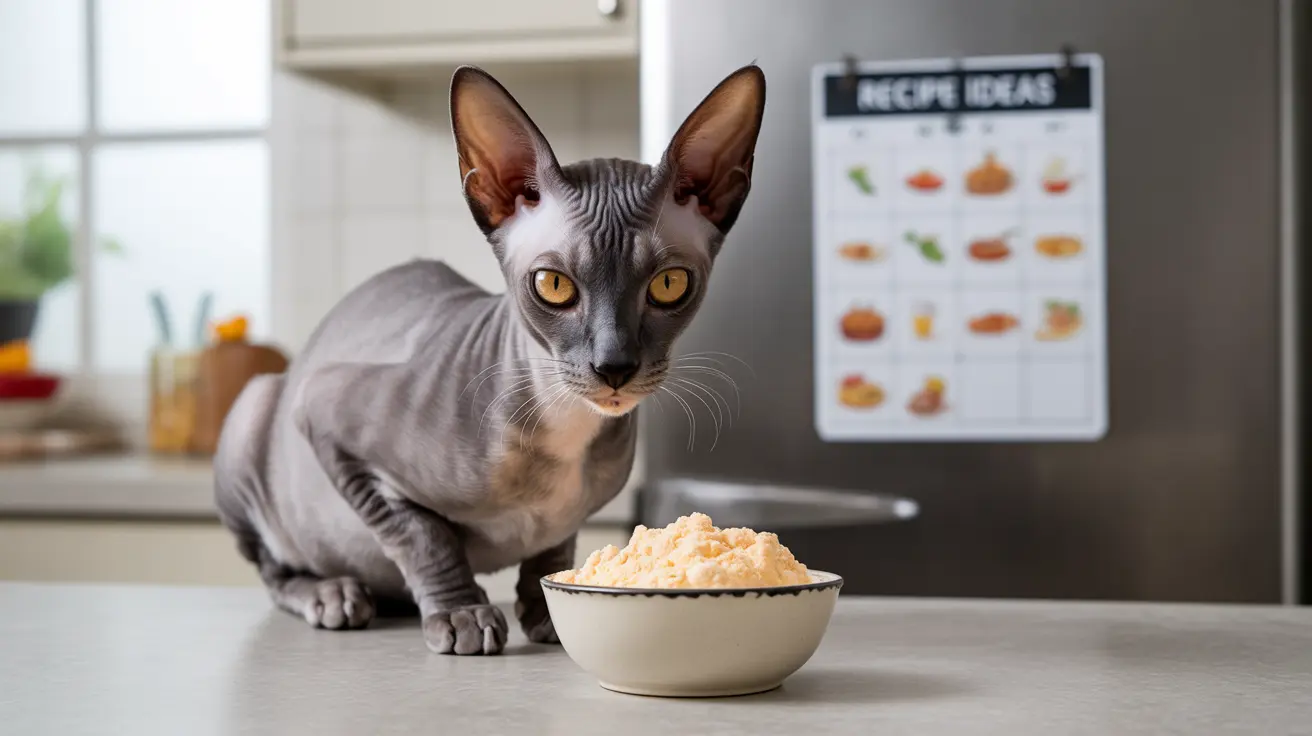As a pet parent, you might wonder about the safety of common household ingredients like cornstarch when it comes to your feline friend. While cornstarch isn't toxic to cats, understanding its role and potential risks in your cat's diet is crucial for maintaining their health and wellbeing.
In this comprehensive guide, we'll explore everything you need to know about cats and cornstarch, including safety considerations, potential health impacts, and what to do if your cat encounters this common kitchen ingredient.
Understanding Cornstarch and Your Cat's Dietary Needs
Cats are obligate carnivores, which means their bodies are designed to thrive on a meat-based diet. Their digestive systems aren't equipped to process large amounts of carbohydrates, including cornstarch, which is essentially a refined carbohydrate derived from corn.
While cornstarch isn't inherently dangerous, it offers no nutritional value for your cat. Their bodies require high-quality protein, essential amino acids, and specific nutrients that can only be found in animal-based foods.
Safety Considerations and Potential Risks
When it comes to cornstarch consumption, there are several important factors to consider:
Digestive Issues
Cats who consume significant amounts of cornstarch may experience digestive upset, including:
- Vomiting
- Diarrhea
- Stomach discomfort
- Loss of appetite
Long-term Health Concerns
Regular exposure to cornstarch or cornstarch-based products can lead to:
- Weight gain and obesity
- Blood sugar regulation problems
- Nutritional imbalances
- Potential allergic reactions
Cornstarch in Commercial Cat Foods
You might notice cornstarch listed as an ingredient in some commercial cat foods. In these products, cornstarch typically serves as a thickener or binding agent and is present in very small quantities. When properly processed and cooked, this minimal amount is generally safe for cats.
However, the presence of cornstarch shouldn't be a primary consideration when choosing cat food. Instead, focus on products that list high-quality animal protein as their main ingredients.
What to Do If Your Cat Consumes Cornstarch
If your cat accidentally ingests cornstarch, don't panic. Monitor them for any signs of digestive upset or unusual behavior. In most cases, small amounts won't cause serious problems. However, contact your veterinarian if you notice:
- Persistent vomiting or diarrhea
- Lethargy or unusual behavior
- Signs of allergic reactions
- Difficulty breathing (if inhaled)
Best Practices for Cat Nutrition
To ensure your cat's optimal health, focus on:
- Providing a balanced, meat-based diet
- Limiting exposure to unnecessary carbohydrates
- Consulting with your veterinarian about appropriate dietary choices
- Reading pet food labels carefully
Frequently Asked Questions
Is cornstarch safe for cats to eat, and can it cause any health problems?
While cornstarch isn't toxic to cats, it's not recommended for consumption. It can cause digestive issues if eaten in large quantities and offers no nutritional benefits for your feline companion.
Why should cornstarch not be a regular part of my cat's diet despite being non-toxic?
As obligate carnivores, cats require a meat-based diet rich in protein. Cornstarch is a refined carbohydrate that can displace essential nutrients and potentially lead to weight gain and other health issues.
Can cornstarch in commercial cat foods affect my cat's digestion or cause allergies?
The small amounts of cornstarch used in commercial cat foods are generally safe and unlikely to cause problems. However, some cats may be sensitive or allergic to corn products, so monitor your pet for any adverse reactions.
What should I do if my cat accidentally ingests baby powder or cornstarch-based products?
Monitor your cat for signs of digestive upset or respiratory issues. Contact your veterinarian if you notice any concerning symptoms, particularly if the product was inhaled.
How do cats metabolize cornstarch compared to their natural meat-based diet?
Cats lack the necessary enzymes to efficiently process and utilize carbohydrates like cornstarch. Their digestive systems are optimized for processing protein and fat from animal sources, making cornstarch an unnecessary and potentially problematic ingredient.






